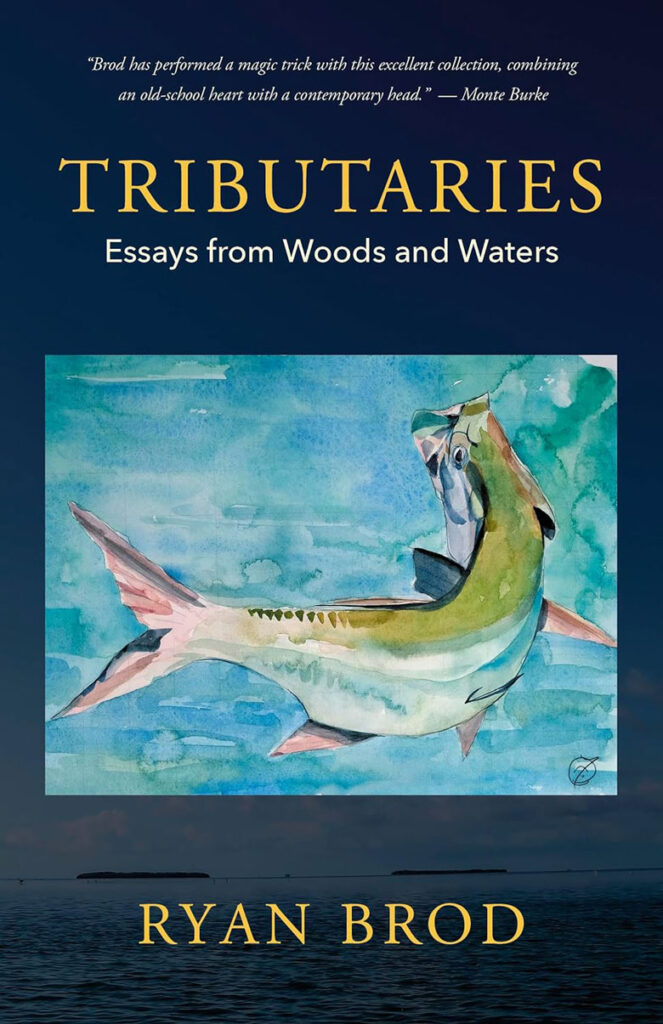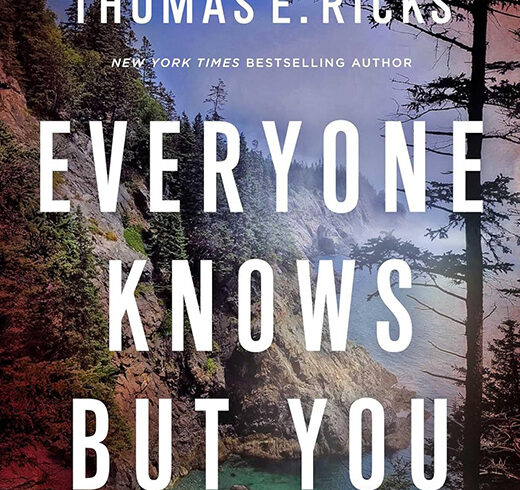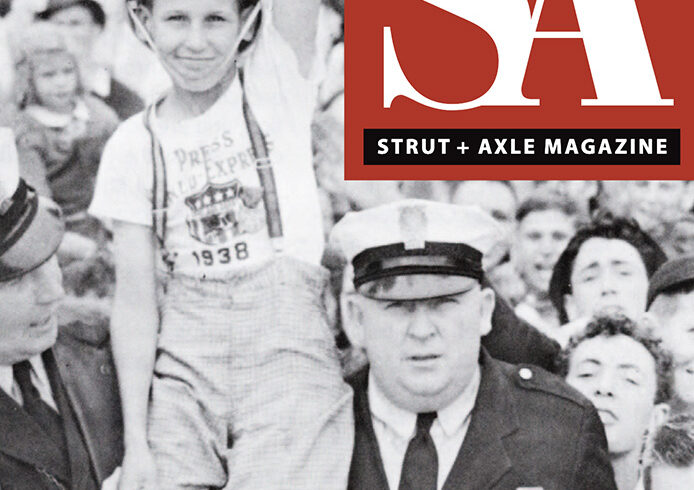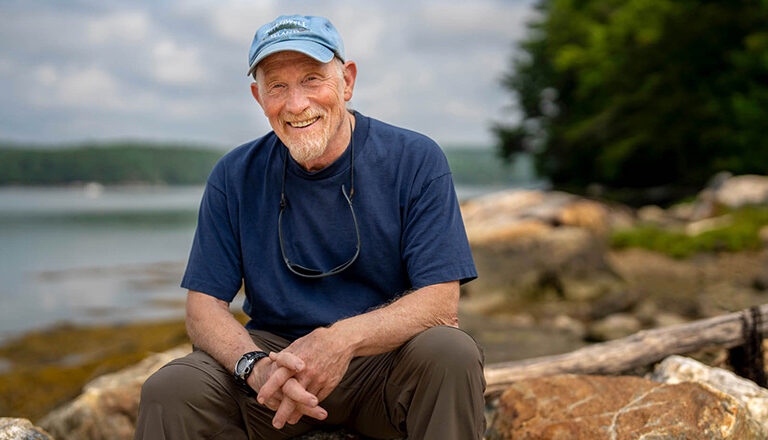Tributaries: Essays from Woods and Waters
By Ryan Brod; Islandport Press (2023)
Years ago I had a friend who liked to fish. Actually, it went way beyond “liking.” He was obsessed with it. He hounded me to go with him. He recited dreams he had of plodding around in marshes and bogs, up and down brooks and streams in Southern Maine.
Usually more things happened in the dreams than in the expeditions. When I suggested to his girlfriend that he might have gone a little overboard, she said, “Yeah, but he never catches anything.”
It’s another world that’s hard to wrap your head around if you have nothing analogous in your life. In a way it’s something like being in love. You can think of nothing but the beloved. It’s so consuming it starts to seem like a religious experience.
One of the pinnacle skills for sport fishermen is fly casting, and Brod spent his life from childhood perfecting this art.
This is the world Ryan Brod depicts in his essay collection, Tributaries. Brod grew up in Maine’s Belgrade Lakes Region, where he learned from his dad the traditional outdoors life of fishing and hunting.
The book’s 23 short essays take us onto rivers, streams, and lakes in central Maine, on an ice-fishing expedition with a bunch of city rubes, to the north woods to fish for muskies and hunt for moose, and to Merrymeeting Bay which, we learn, is the only place in Maine where you can find carp.
But it’s in the Florida Keys, of all places, that the depth of Brod’s fishing obsession is most fully sounded. One of the pinnacle skills for sport fishermen is fly casting, and Brod spent his life from childhood perfecting this art. There’s a lot more to it than just placing the fly accurately, and all this is tested when Brod goes fishing for the monstrous tarpon.
A Maine Guide himself, Brod enlists a Floridian guide, Rich, who we eventually learn will become a close friend, and he takes us through the frustrations and fine points of learning to spot and cast a line for the wily fish.
In “The Cast,” one of the most vivid pieces in the book, Brod, now experienced with tarpon, drives to Florida with his friend Parker who is putting in a mighty effort to become a viable fly fisherman. The drive itself, the gritty stops, the road weariness, and the anticipation that’s motivating the pair, are given in atmospheric detail.
By the last day of the trip, they haven’t caught anything. But Ryan admires Parker’s doggedness, and on their final excursion, they spot some fish. Their first attempt fails. Then:
“I poled farther down the flat. Parker adjusted line. I could sense his confidence rising—as I had after he’d made that good cast at the laid-up giant with Rich, years prior. Now he stood on the bow with his shoulders wider, a little taller somehow, puffed up, ready… Parker took a few false casts: tight loops and good line speed. He stopped the rod tip high, and the line shot forward. His fly landed just off the tarpon’s snout, a perfect cast.”
In this passage, typical of the book’s skillful writing, we get not only the details of fly casting, but of the emotions that come with it.
Elsewhere we hear of the author’s more complicated relationship with his father, a long-experienced hunter and fisherman in the Maine woods, as Ryan walks us through his first look at a deer through his rifle sights and the traditions practiced on first kill.
These essays are in their own ways explorations of the identity provided by the outdoors obsession, especially fishing.
“Serpentine” concludes on the reflection that the “overwhelming number of ponds, lakes, rivers, streams” in Maine—the many “tributaries”—offer each another memory and “I’m faced again with a different version of myself. I return and remember who I am.”
The writing in Tributaries is very clean and sharp, which is not always true of the products of the MFA industry, as Ryan Brod is. This book gives a remarkably vivid picture of the dreamlike world of obsessive fishing.
Dana Wilde lives in Troy and writes the Backyard Naturalist column for the Kennebec Journal newspaper.





